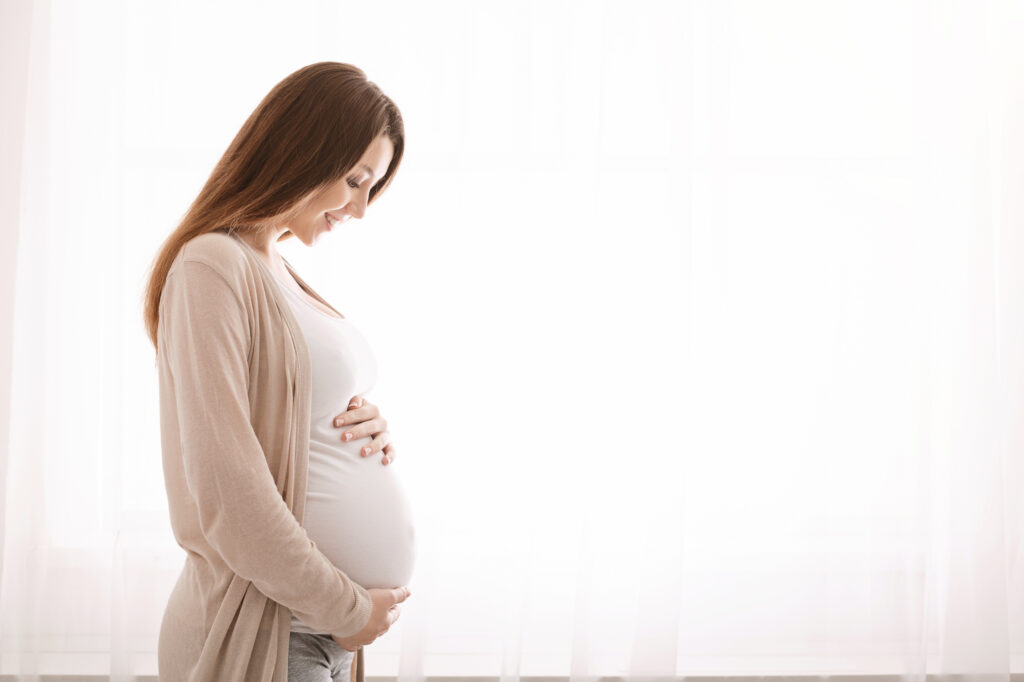At Her Harbor, we understand the unique and sensitive nature of seeking addiction treatment during pregnancy. You’re about to become a mother, and you’re also undergoing a profound personal transformation in the form of recovery. This journey requires specialized care that addresses not only the addiction but also the well-being of both the mother and her unborn child. Knowing what to look for in a treatment program can make all the difference.
Addiction Treatment for Pregnant Women
The approach to drug and alcohol treatment for pregnant women should be compassionate, comprehensive, and tailored to the unique needs of expecting mothers. It involves more than just addressing substance use; it includes support for the physical changes in pregnancy, emotional fluctuations, and preparation for motherhood. Effective programs provide a blend of medical care, counseling, and support groups, focusing on creating a healthy environment for both mother and baby.

Risks and Side Effects of Alcohol Use During Pregnancy
Alcohol use during pregnancy can lead to Fetal Alcohol Spectrum Disorders (FASDs), characterized by a range of effects from developmental delays to physical abnormalities. Even moderate drinking can impact the baby’s brain development, leading to long-term cognitive and behavioral issues. The safest approach during pregnancy is to abstain from alcohol entirely.
Risks and Side Effects of Drug Use During Pregnancy
Similar to alcohol, drug use during pregnancy can have detrimental effects on the fetus, including premature birth, low birth weight, developmental delays, and withdrawal symptoms post-birth. The specific risks can vary depending on the substance but uniformly pose a threat to the health and development of the unborn child.
Can I Detox While Pregnant?
Detoxification during pregnancy requires careful medical supervision. While detox is possible and sometimes necessary, it must be approached with caution to ensure the safety of both the mother and the developing fetus. Sudden withdrawal from substances can be harmful, making it crucial to seek a program that offers specialized, safe detox options for pregnant women, overseen by medical professionals experienced in managing detox for this sensitive group.
Essential Factors to Look for in Treatment as a Pregnant Woman
Here are a few things to consider when looking at treatment centers:
Specialized Prenatal Care: Ensure that the treatment program offers comprehensive prenatal care. Regular check-ups, ultrasound scans, and monitoring of the baby’s development should go hand in hand with addiction treatment to ensure the health of the fetus.
Trained Staff: The presence of medical and therapeutic staff trained specifically in the care of pregnant women dealing with addiction is vital. Their expertise can make a significant difference in the quality of care received.
Integrated Treatment: Look for programs that offer an integrated approach, addressing not just addiction but also mental health, nutritional needs, and preparation for parenting.
Safe Detox Options: Detoxification must be managed carefully to minimize risks to the fetus, with tailored protocols to ensure the safety of detox during pregnancy.
Family Support: Addiction affects not just the individual but their loved ones as well. Treatment should include support for family members and involve them in the recovery process when appropriate.
Outpatient Care: A Partial Hospitalization Program provides more intensive support, similar to inpatient care, but allows you to return home after daily treatment. An Intensive Outpatient Program offers even more flexibility, with therapy and support structured around your daily life.
Aftercare Planning: The transition post-treatment is critical. A good program will help you plan for life after rehab, including ongoing support, relapse prevention strategies, and resources for new mothers.
Nutritional Support: Pregnancy demands increased nutritional care. Programs should provide nutritional counseling and support to meet the heightened needs during this time.
Childcare Options: For women who already have children, onsite or coordinated childcare solutions can ease the burden of seeking treatment and support full participation in the program.
How to Get Help
If you or a loved one is pregnant and struggling with addiction, Her Harbor can assist you in finding the perfect place for you to recover. Don’t wait to take the first step towards recovery and a healthy start for your child. Contact us today to learn more about how we can accommodate your needs and support you through this important journey. Your bravery in seeking help not only changes your life but secures a healthier, happier future for your child.
Frequently Asked Questions About Rehab for Pregnant Women
What are the health needs of a pregnant woman?
The health needs of a pregnant woman include regular prenatal care to monitor the health of the fetus, nutritional support to cater to the increased dietary requirements, mental health support to address emotional changes, and physical activity appropriate for pregnancy to maintain overall health and prepare for childbirth.
What are the fetal complications associated with drug or alcohol addicted mothers?
Fetal complications can include low birth weight, premature birth, developmental delays, and withdrawal symptoms after birth. Exposure to drugs or alcohol in utero can also lead to Fetal Alcohol Spectrum Disorders (FASDs) and a range of other lifelong health and developmental issues.
What are the most commonly used drugs during pregnancy?
The most commonly used substances during pregnancy include nicotine, alcohol, marijuana, opioids, and prescription drugs such as benzodiazepines and stimulants. The use of these substances can significantly impact both maternal and fetal health.
What types of specialized treatment options are available for pregnant women in rehab?
Specialized treatment options for pregnant women in rehab include medically supervised detox, individual and group therapy focused on pregnancy and motherhood, prenatal care, nutritional counseling, and support groups specifically for pregnant women struggling with substance use.
How does rehab for pregnant women address the health needs of both the mother and the unborn child?
Rehab programs for pregnant women are designed to address the health needs of both by providing comprehensive prenatal care, ensuring any detoxification is safely managed, offering nutritional support tailored to pregnancy, and ensuring any therapeutic interventions are safe and beneficial for both the mother and the unborn child.
Are there specific medications or therapies used in rehab that are safe for pregnant women?
Yes, there are specific medications and therapeutic approaches deemed safe for pregnant women, which can include certain antidepressants, methadone for opioid dependency, and non-pharmacological therapies like cognitive-behavioral therapy (CBT) and mindfulness practices. All medications and therapies are carefully chosen based on their safety profile during pregnancy.
What kind of support is provided for pregnant women who have other children?
Rehab programs for pregnant women often offer childcare services or coordinate care to ensure that the woman’s other children are looked after while she is in treatment. Additionally, family therapy and parenting classes may be provided to support her in managing her responsibilities as a mother.
How can family members be involved in the rehab process for pregnant women?
Family members can be involved through family therapy sessions, educational programs about addiction and recovery, and by participating in planning and support meetings. This involvement helps build a strong support system for the woman both during and after her time in rehab.
Are there accommodations or facilities specifically designed for pregnant women in rehab centers?
Many rehab centers offer accommodations and facilities specifically designed for pregnant women, such as comfortable, private rooms, access to prenatal care, and spaces for family visits or therapy sessions. These facilities are tailored to meet the unique needs of pregnant women in treatment.

Natasha Davis is a seasoned executive with a comprehensive background in management, investment, real estate, and marketing. Her extensive experience spans various industries, showcasing her versatility and leadership capabilities. Her strategic thinking, ability to build strong relationships, and dedication to achieving business goals have been proven time and again throughout her diverse career.
